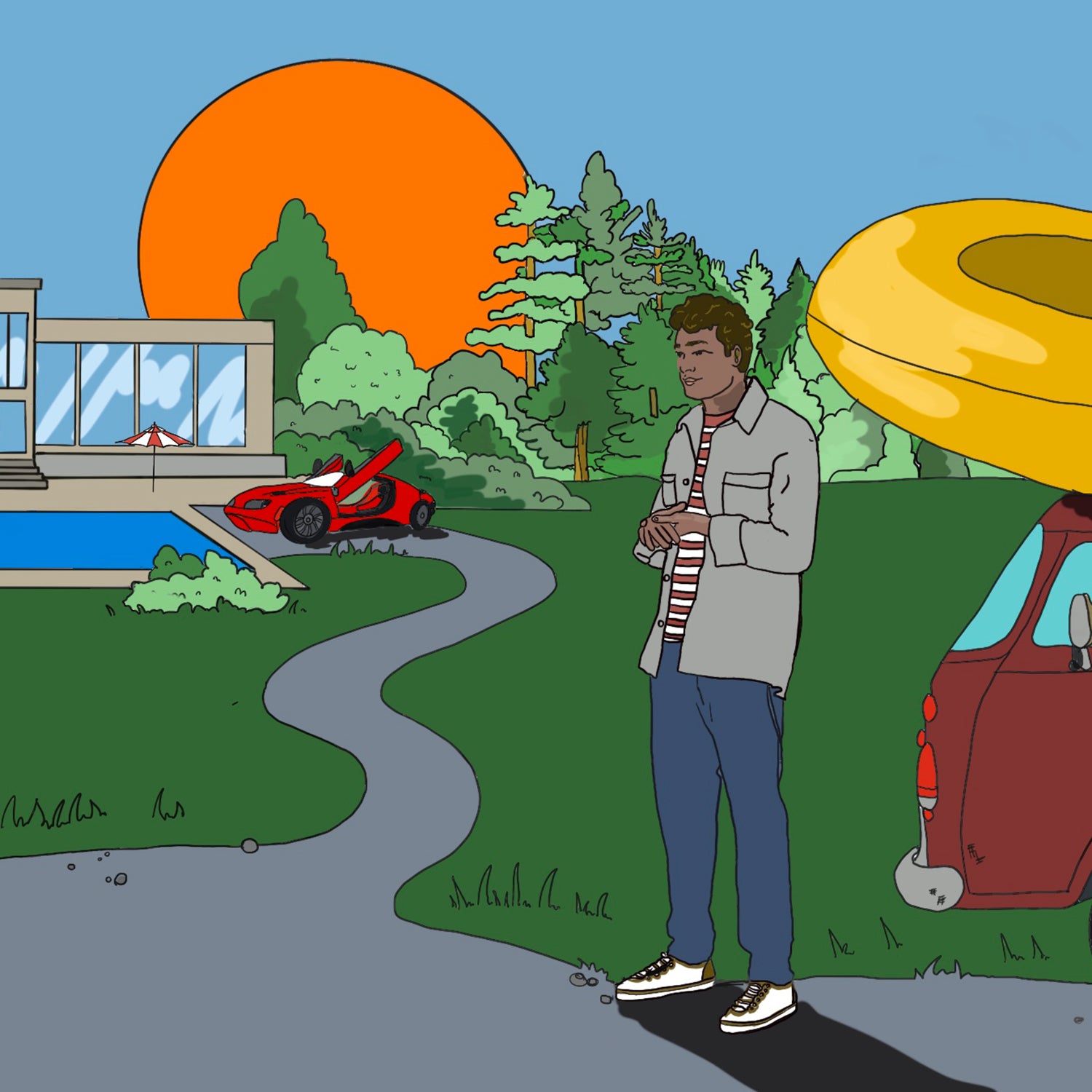Dear Sundog: Decades ago I worked with a close friend as a river guide and we were both complete dirtbags, living in our cars during raft season then traveling around during the winter. Since then, I’ve become financially successful and have a garage filled with rafts, kayaks, trailers, oars, paddles, and SUPs to prove it. My friend has worked as a freelancer and has always been candid about how difficult it is to pay his mortgage and make ends meet. At least once a year he asks to borrow a raft for a multi-day river trip (sometimes with me, sometimes not) and I’ve always been happy to lend it to him. He takes good care of my equipment and repairs or replaces anything that gets damaged. I love to see him taking his children out on the river.
Recently after a few beers around the campfire, he revealed to me that for two decades he and his wife had each been socking away $6,000 each year into their IRAs and investing in tech stocks, and now have a portfolio valued at half a million dollars. Now I feel a bit tricked, like he had the cash to buy his own boat years ago but chose instead to save, and I’d be a dupe for continuing to lend him mine. What should I do? —Loaner
Dear Loaner, I fully understand why you feel duped. You thought you were helping a poor relation; turns out he had been hoarding his dollars all along. While your friend’s behavior may have perplexed or even hurt you, I don’t think he was unethical. He was living frugally and within his means. In a country without a safety net, we know that we likely won’t be able to live off of Social Security, and we have to do our own saving and planning. Ditto that if we’d like to send our kids to college. And let’s face it, whitewater boats—and for that matter, all outdoor gear—is expensive. Former dirtbag guides like Sundog and you and your friend came to believe that the rafts, oars, trucks, and trailers sort of grew on trees: they arrived at the ramp each morning ready for us to use all day. It came as a shock to Sundog to learn that, after “retirement” from guiding, he couldn’t even afford to get back on the river! It would seem that your friend did the responsible thing and did not buy things out of his budget.
What’s more, there seems something inherently virtuous about borrowing in our world of over-consumption and ecological crisis. Rafts are manufactured from a toxic cocktail of chemicals; it’s hard to justify purchasing one that is going to sit in a garage 50 weeks out of the year.
Lastly, was your friend obliged to keep you posted on the status of his retirement investments over the year? I think not.
And yet. You not only chose to invest in fun and adventure—you freely lent your toys to someone in need. It doesn’t seem fair. Loaner, you would be perfectly within your rights to simply tell your friend in the future that you’d prefer not to lend your boat anymore. You don’t even need to supply a reason.
Before you do, I’d recommend that you think deeply about why you have been so generous in the past. Was it because you simply wanted your friend to enjoy the river? Or were there murkier waters? For example, did you enjoy the regular reminder that you were more financially successful than your friend? Here’s a useful thought experiment: what if a similar friend who lived close to the bone asked to borrow your gear, and yet you knew that he had a massive trust fund. Would it feel wrong to give to someone who clearly did not need it? Charity is slippery. Sometimes we give out of true empathy, but sometimes we give to feel good about ourselves, or even simply to give others the impression that we are generous. After all what is more benevolent: a tycoon who gives a million dollars which is a small fraction of his fortune, or a homeless person who gives you his last dollar?
I’d say that what’s more important than the boat here is the friendship, and you don’t want the oar frame to become a proxy battleground for unspoken resentments. Probably what’s best—though not easiest—is before the next spring runoff is that you take your friend for a beer or a walk, and talk this through, not so much the specifics of the loaning, but your deeper values around money, spending, and savings. There is a good reason that people are reluctant to talk about money—there’s a lot of shame both in having too much and having too little. Talking about it will likely make the friendship stronger.
In a recent column, Sundog weighed in on collecting rocks on public lands. One experienced reader suggested that we consider what it is that the rocks want, a position so unexpected and delightful that Sundog wishes he’d come up with it first:
As a field biologist who would like to be a geologist in another life, I enjoyed your reflection. Whenever I have traveled—like your wife—I return with a rock. Well, perhaps more than one. And my garden is littered with these rocks. There are flakes from Vegas mixed with flakes from the Rift Valley. Maybe I thought they could have a conversation.
I too covet rocks. So now, before I take, I ask the rock: “Are you doing a job?” I am always answered. “My job is to be a part of this hillside” or “My job is to make a striking statement for those who will pass by.” Or “I am here to be found by a child and painted.” But sometimes they will say, “I am not doing any meaningful work and have no special purpose, in fact I just find myself with nothing to do that is good for any creature, any rock, or rock bank.” I take those to the rock wall I am building. And they are appreciated regularly. Not that they need that. But I am grateful that they are part of my world and there is something to be said for gratitude.
Still, when my husband and I travel we say to each other: just one! Last trip resulted in one very small piece of bubbly chalcedony. —Robbin

Mark Sundeen, aka Sundog, has been borrowing other people’s rafts since as far back as the 90s. When doing so, it’s a good idea to pay forward the generosity.
Got a question of your own? Mad as hell about something Sundog wrote? Send a note to: sundogsalmanac@hotmail.com.


